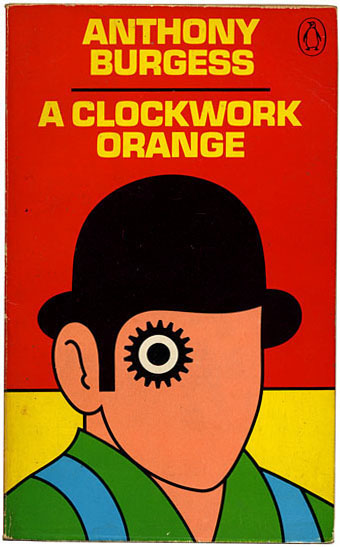Nice collection of old covers for Penguin Books on Joe Kral’s Flickr pages. Looking over these, many of which are very familiar even though I’ve never owned them, makes me aware of how many hours of my life must have been spent in secondhand bookshops. The David Pelham cover for A Clockwork Orange has always been a favourite Penguin design. Pelham did a number of great covers for Penguin’s SF titles in the 1970s but the Burgess volume proved the most durable, unusually for a cover design surviving many reprintings. Via Boing Boing.
Elsewhere on { feuilleton }
• The book covers archive







